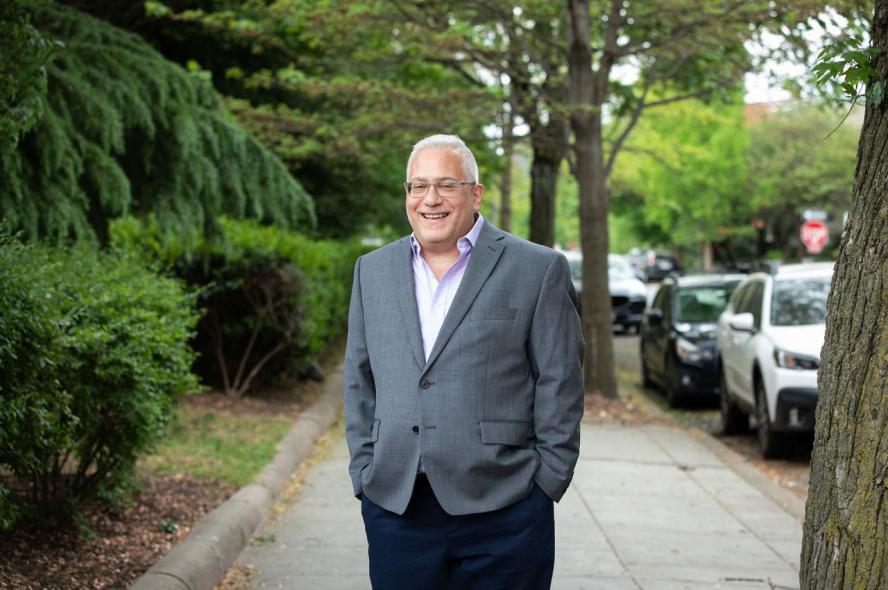-
About
- Departments & Offices
-
Academics
- Physician Assistant
- Special Master’s (MBS)
-
Admissions & Financial Aid
- Tuition & Fees
-
Student Experience
-
- Student Resources by Program
- Academic & Student Support
- Wellness & Wellbeing
- Student Life
- Events & Traditions
-
-
Research
- Research Labs & Centers
-
Local & Global Engagement
- Global Health Programs
- Community Engagement
Tom Natan, MPH23
"I entered here thinking that biostatistics was going to be it for me, because I really like data analysis and number crunching. I didn’t expect epidemiology classes to spark my interest as much as they did, but I really enjoyed them."

School: Tufts University School of Medicine
Degree: Master of Public Health
Home: Washington, D.C.—it’s where I met my husband, and we’ve lived there for more than 30 years.
What brought you to TUSM?
I did environmental health work for many years. I took a break from it to start a wine importing business that was kind of an outgrowth of my environmental work. But I began feeling like it was time to use my analytical brain again, and I thought public health would be a good complement to the work I’d done before. Also, while I’d done some federal policy work in the past, I hadn’t ever done any local policy work, and I wanted to move in that direction so I can do something that will directly help people.
Any advice for someone who wants to follow a path like yours?
Don’t be afraid to follow the right or left turn that sparks your interest. I entered here thinking that biostatistics was going to be it for me, because I really like data analysis and number crunching. I didn’t expect epidemiology classes to spark my interest as much as they did, but I really enjoyed them.
Also, allow yourself to be distracted by the things that you enjoy. It might seem like you’re creating a future that’s a departure from your past, but you generally always build on what you’ve done before—even if only in discovering that you never should have done the thing in the first place.
What’s one thing you’ve learned that you know will stick with you?
The structure of the cancer epidemiology course offers such an effective way of breaking down and learning about the potential causes of cancer. You pick a cancer you want to study deeply and go week by week, risk factor by risk factor, filling in the ledger book of potential causes, until in the end you have a complete understanding. It’s an approach I haven't seen in other classes, and I expect I’ll be using it for many projects.
What adjective best describes you?
Thorough. I don’t like to see things half done, and I don’t like to do just a pretty good job.
What’s next?
I’d like to work for a local or state government entity. I’ve been on the NGO side, and I’ve worked in private industry before. Now I’d like to see things from the policymaker’s perspective. Ultimately, I want the work I do to make a difference in people’s health.